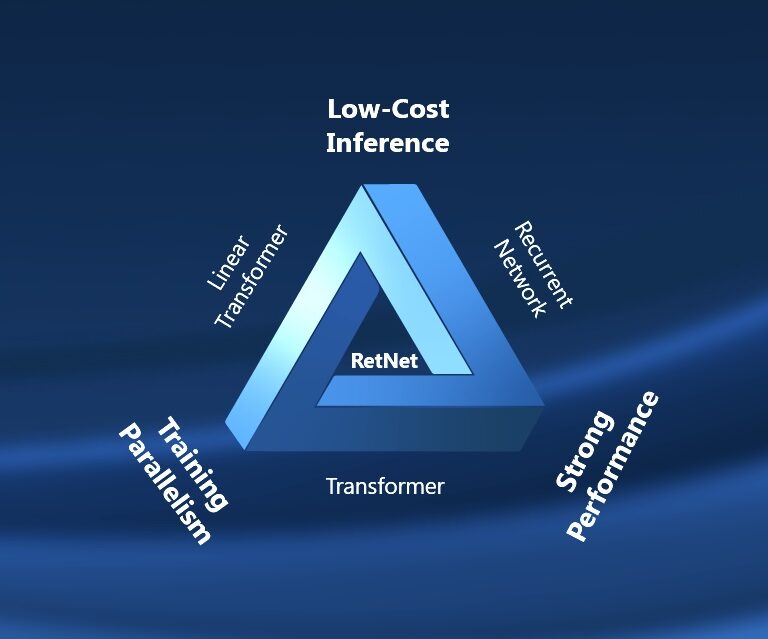
Artificial Intelligence (AI) is revolutionizing the eCommerce landscape by significantly improving personalization, optimizing operations, and facilitating informed, data-driven decision-making. Leading brands are harnessing AI not for futuristic robotics, but for advanced algorithms that forecast trends, enhance customer experiences, and boost operational efficiency.
This blog will explore the transformative impact of AI on online retail and provide actionable insights on how businesses can utilize its capabilities to remain competitive and achieve sustainable growth.
How AI is Transforming eCommerce
AI is revolutionizing the eCommerce sector by enhancing customer interactions and streamlining operations. Through advanced algorithms, businesses can analyze vast amounts of customer data to deliver personalized shopping experiences that resonate with individual preferences.
Personalized Recommendations and Customer Engagement
One of AI’s most powerful applications in eCommerce is personalized product recommendations. Leveraging historical data, AI systems suggest items based on a shopper’s past behavior, significantly boosting engagement and conversions. Major platforms like Amazon and Alibaba use sophisticated recommendation engines that analyze user activity to enhance product visibility and drive sales.
Automation and Efficiency
AI automates a range of processes, from customer service with chatbots and virtual assistants to transaction facilitation. These tools provide 24/7 support, handling inquiries and transactions seamlessly without human intervention. This improves response times while allowing businesses to allocate resources more efficiently.
Dynamic Pricing and Inventory Management
AI-powered dynamic pricing strategies allow retailers to adjust prices in real-time based on demand, competition, and customer behavior. This flexibility maximizes sales opportunities and maintains competitive pricing. Additionally, AI assists with inventory management by predicting trends and optimizing stock levels, reducing waste and boosting profitability.
Fraud Detection and Security
AI is also transforming fraud detection. By analyzing transaction patterns and identifying anomalies, AI systems flag potentially fraudulent activities, enhancing security for both businesses and consumers.
The Key Benefits of Utilizing AI in eCommerce
In the fast-evolving world of online retail, artificial intelligence (AI) has become a game-changer for eCommerce companies. By enhancing the shopping experience, increasing operational efficiency, and strengthening customer loyalty, AI is essential for businesses looking to stay competitive.

Here are the top advantages of integrating AI into eCommerce:
- More Targeted Marketing & Advertising
Personalized marketing is critical for engaging customers, though many retailers struggle with its full implementation. AI changes the game by analyzing vast amounts of customer data—like purchase history and browsing behavior—to create tailored marketing experiences. This level of personalization enables brands to deliver targeted campaigns that resonate with individual shoppers, driving engagement and conversion. With AI, showcasing products aligned with each customer’s preferences becomes both practical and scalable. - Boosting Customer Retention
Attracting new customers is just the start; keeping them engaged is equally crucial. AI-driven personalization boosts customer loyalty by offering relevant experiences based on deep insights into preferences. Research indicates that omnichannel personalization can increase revenue and retention by 10-15%, making it a valuable investment over traditional marketing methods, as highlighted by McKinsey. - Seamless Automation for Efficiency
AI’s ability to automate repetitive tasks is a major advantage, allowing eCommerce businesses to operate more smoothly. From automating marketing emails and CRM processes to managing inventory and hiring, AI reduces manual workload while increasing accuracy. AI-powered chatbots can address common customer inquiries 24/7, improving service quality without adding staffing costs. This automation allows businesses to focus more on strategic growth. - Creating an Efficient Sales Funnel
AI streamlines the sales funnel by using customer data to guide decisions at every stage of the buying journey. For instance, AI can identify cart abandonment patterns and send reminders to encourage purchase completion. Chatbots assist with product inquiries and recommendations, making the shopping journey smoother and boosting conversion rates. - Enhanced Customer Service
AI strengthens customer service by analyzing interactions across multiple channels to offer a consistent omnichannel experience. Customers receive tailored support whether they’re on a website, mobile app, or social media. Virtual assistants can quickly recommend products or answer questions, simplifying the shopping process and increasing purchase likelihood. - Optimizing Time & Resources
By automating time-consuming tasks, AI frees up resources for strategic initiatives. It can streamline order fulfillment, elevate customer service, and optimize supply chain management. Advanced forecasting helps accurately predict demand, reducing stockouts and cutting supply chain errors by up to 50%. This operational efficiency enables businesses to focus on innovation and customer-focused strategies rather than routine tasks.
Transforming eCommerce with AI: Key Integrations for a Modern Shopping Model
With AI technology advancing rapidly, eCommerce businesses can now harness its capabilities to elevate customer experiences and streamline operations.

Here’s a look at the key AI integrations transforming online shopping:
Focus on the Customer
Personalized Recommendations
AI algorithms analyze customer data, including purchase history and browsing patterns, to provide tailored product recommendations. This level of personalization boosts engagement and drives sales by helping customers discover relevant products more effectively.
Voice Commerce
The rise of voice commerce allows customers to make purchases using virtual assistants like Alexa and Google Home. Through natural language processing (NLP), these AI tools interpret customer queries and recommend relevant products, creating a hands-free, personalized shopping experience.
Localized Experiences
AI can adapt website content based on a user’s location by analyzing IP addresses, helping eCommerce businesses customize the shopping experience to align with local preferences. This localization improves engagement and conversion rates by tailoring content to regional interests and customs.
Omnichannel Personalization
AI enhances personalization across channels—from social media and email to mobile apps—ensuring a consistent and customized experience regardless of where customers interact with the brand.
Helpful Chatbots
AI-powered chatbots provide 24/7 support with quick, accurate responses. By using NLP, chatbots can handle a range of inquiries, improving the shopping experience and boosting customer satisfaction.
Remarketing to Online Shoppers
AI-driven remarketing strategies help businesses target potential buyers with personalized ads. By analyzing user data, AI enables more effective campaigns, increasing conversion rates and fostering customer loyalty.
A More Efficient Sales Process
Pricing Optimization
AI tools analyze market trends and customer behavior to determine optimal pricing strategies. Dynamic pricing allows businesses to stay competitive while remaining transparent about pricing changes with customers.
Smart Search
AI-enhanced search features leverage NLP and machine learning to better interpret customer queries and return more relevant results. Smart search can also recommend related products, boosting sales and enhancing user experience.
Automation for Streamlined Operations
Smart Logistics
AI-powered logistics systems integrate data from IoT devices for real-time shipment monitoring, minimizing delays and optimizing delivery routes. This streamlines operations, reduces costs, and improves customer satisfaction by ensuring timely and efficient deliveries.
Demand Forecasting
AI demand forecasting tools analyze market data and customer patterns to predict future demand accurately. This helps businesses manage inventory levels effectively, reducing the risks of overstocking or stockouts and allowing for data-driven adjustments to meet market demands.
Steps to Implement Artificial Intelligence in eCommerce
Integrating artificial intelligence (AI) into eCommerce can significantly enhance customer experiences, optimize pricing strategies, streamline logistics, and ultimately drive sales growth. Here’s a structured approach to effectively implement AI in your eCommerce business:
- Define Business Objectives and Challenges
Begin by clearly identifying your business objectives and the specific challenges you face. This foundational step will guide you in selecting the most appropriate AI applications that align with your strategic goals. - Identify Relevant Data Sources
Once your objectives are set, pinpoint the data sources that will inform your AI initiatives. This may include customer sales data, product specifications, and market trends, all essential for effective AI analysis. - Select an Appropriate AI Solution
With a clear understanding of your goals and available data, choose an AI solution that meets your specific needs. Consider aspects like scalability, ease of integration with existing systems, and user-friendliness to ensure a smooth implementation process. - Prepare Data for Analysis
Prior to deploying your chosen AI solution, prepare your data for analysis. This involves cleaning, organizing, and formatting the data to ensure it is ready for effective AI processing. - Train the AI Model
After data preparation, proceed to train the AI model by feeding it relevant datasets. This training phase is crucial as it teaches the model to make accurate predictions and recommendations based on the input data. - Test the AI Model
Once trained, rigorously test the AI model to confirm its functionality and accuracy. Employ methods such as A/B testing or performance comparisons against traditional approaches to validate its effectiveness. - Implement the AI Solution
Following successful testing and refinement of the model, integrate it into your eCommerce platform. This may involve connecting the AI system with your website, mobile application, or other sales channels. - Monitor and Optimize Performance
Post-implementation, continuously monitor the performance of the AI solution. Analyze customer feedback and track key metrics related to sales and engagement to make necessary adjustments that enhance its effectiveness.
The Future of eCommerce with AI

The future of eCommerce is bright with AI at its core, as it promises to enhance operational efficiency and enrich the online shopping experience. By leveraging advanced technologies like personalized recommendation systems, AI-driven chatbots for customer service, and predictive analytics for inventory management, eCommerce businesses can offer tailored shopping experiences that resonate with customers. Furthermore, AI enhances supply chain management through automation, improves search functionalities with natural language processing, and increases security through sophisticated fraud detection systems. With innovations such as augmented reality (AR) and dynamic pricing strategies, AI is set to redefine how consumers engage with online retailers, making shopping more intuitive, efficient, and enjoyable than ever before.
FAQs about Artificial Intelligence in eCommerce
1. What is Artificial Intelligence in eCommerce?
Artificial Intelligence (AI) in eCommerce refers to the integration of advanced algorithms and data analytics to enhance online shopping experiences. It leverages technologies such as machine learning and natural language processing to analyze customer data, personalize interactions, and optimize operational strategies, ultimately driving sales and improving customer satisfaction.
2. How does AI enhance personalization in eCommerce?
AI enhances personalization in eCommerce by processing extensive customer data, including browsing patterns and purchase history. This analysis allows eCommerce platforms to offer tailored product recommendations and targeted marketing campaigns, significantly increasing customer engagement and conversion rates.
3. What are the common applications of AI in eCommerce?
AI has numerous applications in the eCommerce sector, including:
- Personalized Recommendations: Suggesting products based on individual user behavior.
- Chatbots and Virtual Assistants: Offering round-the-clock customer support.
- Dynamic Pricing: Adjusting prices in real-time according to market trends.
- Fraud Detection: Identifying and preventing fraudulent activities.
- Smart Logistics: Optimizing inventory management and delivery routes.
4. How does AI contribute to customer retention in eCommerce?
AI boosts customer retention by creating highly personalized shopping experiences tailored to individual preferences. By analyzing customer behavior, businesses can develop targeted marketing strategies and loyalty programs that encourage repeat purchases and foster long-term customer relationships.
5. Can AI improve operational efficiency in eCommerce?
Yes, AI can significantly enhance operational efficiency by automating repetitive tasks such as inventory management, order processing, and customer service. This automation allows eCommerce businesses to streamline processes, reduce costs, and focus on strategic growth initiatives.
6. What is dynamic pricing, and how does AI enable it?
Dynamic pricing is a pricing strategy that allows retailers to modify prices in real-time based on demand fluctuations, competition, and customer behavior. AI facilitates dynamic pricing by analyzing market data and customer insights to determine the most effective pricing strategies, thereby maximizing sales opportunities.
7. How do AI chatbots improve customer service in eCommerce?
AI chatbots improve customer service by providing instant answers to inquiries and facilitating transactions 24/7. They can handle various customer queries, offer personalized product suggestions, and enhance the overall shopping experience without requiring human staff, thereby increasing efficiency and satisfaction.
8. What steps are involved in implementing AI in an eCommerce business?
To implement AI in an eCommerce business, follow these steps:
- Define your business objectives and challenges.
- Identify relevant data sources.
- Choose an appropriate AI solution.
- Prepare your data for analysis.
- Train the AI model.
- Test the AI model for accuracy and effectiveness.
- Implement the AI solution in your operations.
- Monitor performance and optimize as necessary.
9. What future advancements can we expect from AI in eCommerce?
The future of AI in eCommerce is bright, with expected advancements including more sophisticated personalized shopping experiences, enhanced automation, improved logistics and supply chain management, and the integration of cutting-edge technologies such as voice commerce and augmented reality.
10. How can businesses leverage AI to stay competitive in eCommerce?
Businesses can maintain a competitive edge by harnessing AI to enhance customer experiences, streamline operational processes, and enable data-driven decision-making. By adopting AI technologies, companies can quickly adapt to market trends, effectively meet customer needs, and achieve sustainable growth.






